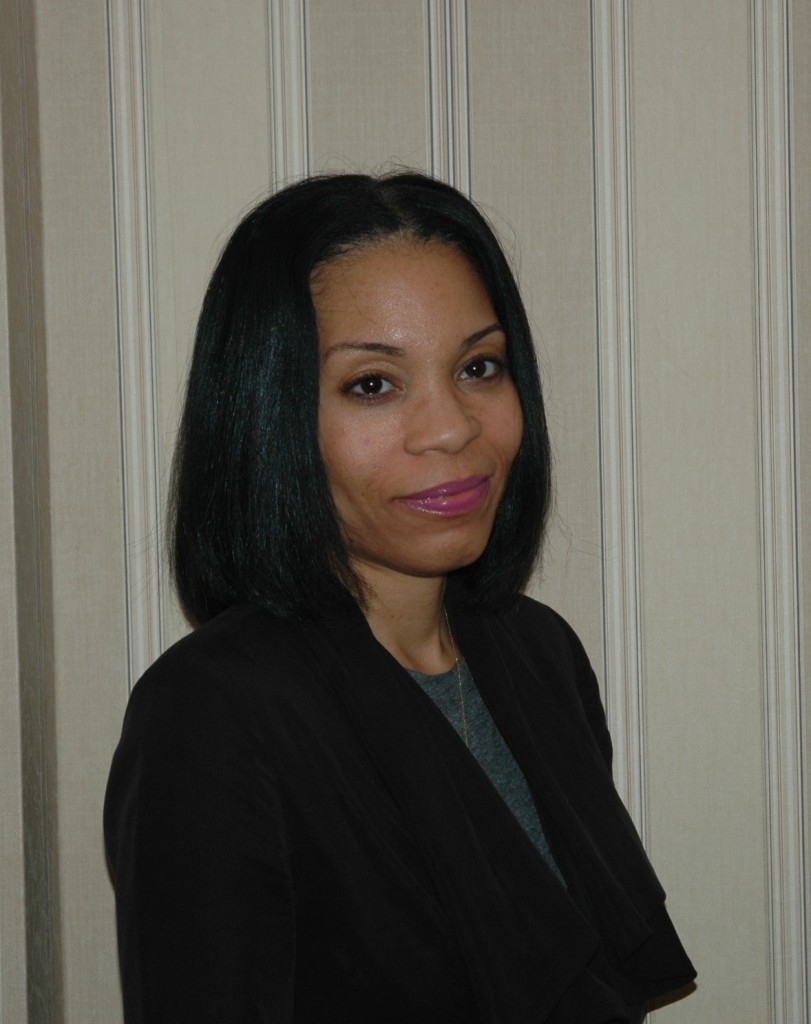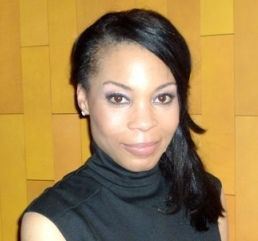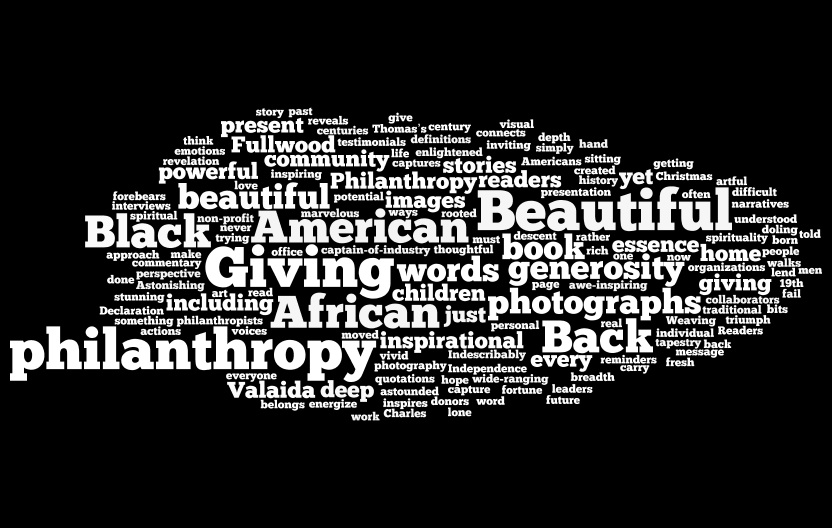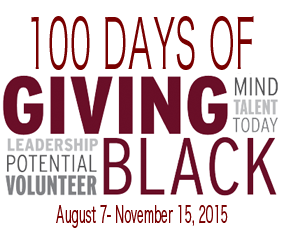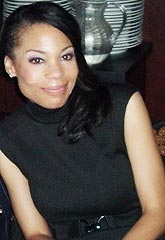
Good Morning POU!
Today’s featuree has made it her mission to spotlight black philanthropy.
Tracey Webb is a young black woman making history as the first online chronicler of black philanthropy. Most people think of big names like Oprah or Diddy when blacks donating money comes to mind – but this is hardly the extent of African American social generosity. African American philanthropists come from every economic bracket, have existed throughout our history and are not all famous. The founder of BlackGivesBack.com, Ms. Webb works tirelessly through her blog to ensure that the world is informed about the large and complex world of black philanthropy.
(The following is a reprint from Empower Magazine and Black Voices)
Tracey Webb, native Washingtonian, began her first philanthropic journey on the home front. With parents, grandparents and extended family that were all passionate givers, Webb was instilled with a desire to be a giver as well from a very early age.
“No one ever said: ‘Now Tracey, it’s very important to give back’,” Webb said. But, she witnessed her family giving back to their communities and it shaped the way she saw the world. “It was a tradition I wanted to continue,” Webb said.
As she grew up, Webb would talk to her family and they would share their stories or experiences about helping out their community.”I was really intrigued by my ancestors and the acts of giving that they did. Back during the Civil Rights Movement, my aunt in North Carolina opened up her home as a safe haven for people who were traveling. Thurgood Marshall stopped by and stayed there. Just hearing those stories really inspired me. Sometimes I think: ‘Where did this fire for giving start?’ Even though I was exposed to it early on, I wanted to know where my parents got that spark. Where did it come from in my grandparents? It’s just been something deeply rooted in my family for generations.”
Webb continued the tradition of her ancestors when she founded Black Benefactors, a giving circle supporting nonprofit organizations. Her circle addresses issues facing the African American community. Members of Black Benefactors pool their time and money to give back to deserving organizations and individuals in the DC area. She is also the founder and editor of the blog Black Gives Back, which chronicles the involvement of Blacks in philanthropy, especially in the DC area. emPower magazine spoke with Webb, an 2015 emPower Player.
When and how did Black Benefactors and Black Gives Back begin?
Webb: I started the Black Benefactors first. The idea came to me in 2005. It was really interesting how it came to me. A few years prior to launching Black Benefactors I was working as an executive director for a non-profit and I was struggling in my role. I was struggling with fund-raising, board development—everything; you name it. One day out of the blue I got a call from a women’s giving circle and they said, “We want to come out and meet you and talk to you.” And I said, “Giving circle? What is that?” When the staff and the clients in the program came out to talk with me I had a lot of questions for them such as: “How did they meet? What is this concept? And, how does it work?” That visit always stayed in the back of my mind after the women left.
Unfortunately, I couldn’t keep that particular program open; the challenges were just too great. It was at that time that I wanted to begin a career in grant making. I wanted to help organizations get money because I had so many challenges myself. When I got into grant making I noticed that all of the organizations in my portfolio that were black-led were having the same challenges that I was, some even more. And I thought, “Well, why is that?” I thought back to the visit from the giving circle, because I knew that there had to be some kind of resource out there for these organizations to help them. There had to be resources that could help build their capacity and help people in the community utilize their expertise. Before forming my giving circle I did two years of research because I didn’t want to duplicate any efforts. During my research I met with some other black giving circles across the country and it was eye-opening. After those two years, Black Benefactors officially launched in 2007.
I was planning to create a blog for the giving circle to highlight non-profit organizations in the DC area. At the same time, I wanted to highlight donors to inspire people to give. I also wanted to shine a spotlight specifically on black giving. I thought that a blog would be a great way to do that. I started it as a hobby, so it’s not like a full-fledged business at all. I really just wanted to re-frame what philanthropy looks like and how people define it. Many people still associate it with being well off or writing large checks. The goal of my blog was to bring the perception of philanthropy back to its root meaning and also to inspire people so they could read stories and say: “Oh, that’s really interesting… I could do that.”
For someone who has never heard of Black Benefactors or Black Gives Back, what are they all about?
Webb: Black Benefactors is a giving circle. A giving circle is a vehicle where people come together and they pool their buy viagra mississauga money and time and then decide where they want to give them away. It’s a very simple concept. If you think about it, there are a lot of groups and organizations that are similar in how they collectively give back but they may not call themselves a “giving circle.” The main difference in a giving circle versus other organizations like it is that it supports outside causes where some organizations pool resources to benefit themselves. For Black Benefactors, each member donates $300 a year and that money is pooled together. This money is for our grants.
Was there every an ah-ha moment that made it all worth it? One that made you think, “This is what I was made to do?”
Webb: There’s a couple that come to mind but the most recent one is the aftermath of featuring Blake, a six-year-old philanthropist in one of my stories. He was inspired to start a food drive for a local homeless shelter. I featured his story and his mom shared with me some months later that because of that story, her son got a lot more national attention. He was even selected as a regional winner for the Kohl’s national scholarship. The email from Blake’s mother said: “BlackGivesBack, it was your interview that earned Blake Kohl’s Regional Philanthropist of the Year. Because of BlackGivesBack, children as far as Brazil support Blake Mini Libraries. Thank you for embracing the heart and soul of a six-year old and giving our youth a voice as philanthropists. Most of all, thank you for giving my family and me the best Kwanzaa gift ever!” When I hear stories like that, it really helps to keep me going. That was one of those ah-ha moments that definitely makes it all worth it.
Where do you see yourself and your projects in the years to come?
Webb: I definitely hope to see my giving circle expand. I have so many ideas. I see our membership increasing and incorporating more advocacy to our efforts. I also see us partnering with community groups farther outside of DC. Like I said though, I really see my giving circle expanding. It’s my heart. I started it first. I’m really excited for where it’s headed.
What is your favorite black philanthropy and who would you say is the biggest black philanthropist of all time?
I’m going to be biased because I have my own charity! My favorite black organization is mine. I founded a giving circle in 2005, which is a group of individuals who pool their monies for a given cause. It’s called The Black Benefactors. We just gave out our first grants recently totaling $10,000, so I’m really, really excited, because it’s been almost five long years in the making. I’m also happy to say that all the organizations that we funded are African American-led. And even though we are called The Black Benefactors, people think you have to be black to join – not true! We have members of different races.
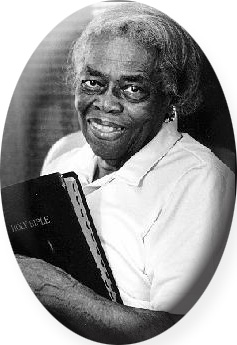
[In terms of my favorite black philanthropist of all time], I’m not going to say a celebrity. Oseola McCarty was a woman who saved up her money for years and when she passed away she left $150,000 [to the University of Southern Mississippi] for students to further their education. She is probably the most inspirational, because she showed that you do not have to be rich in order to give back to your community. She saved up her money for years, and she did not tell anyone. She worked washing clothes. Her gift shocked everybody. That’s how passionate she was about helping students.
Then there are also lesser known, but prominent, African Americans like Eddie and Sylvia Brown. Eddie Brown has donated $5 million to the Baltimore public school system [to help African American students]. At the Maryland Institute College of Art this African American couple has a building in their name – The Eddie and Sylvia Brown Center. They donated $7 million to this organization.
What do you see as the connection between black philanthropy and our future as a community?
Black philanthropy is essential for our future. It is being predicted that by 2050 communities of color with constitute over half of the population. We definitely need to ensure now that we will have resources available for us. It’s still unfortunately the case that many organizations that primarily serve African American communities are headed by whites who are not connected to communities of color. Very few of the major foundations have people of color on their boards. One that does is Target. Laysha Ward is the head of their philanthropic efforts. So we do have some that are in those very important positions. We just need to support the people and organizations in place now, and make sure that we are in control of the funds that will serve our community.
What is the connection between giving and greatness?
There is definitely a connection between giving and greatness. It’s even in the Bible. Everybody has something to give. Even if you don’t have money, you can use your talents. Whatever you’re good at, you can use that to benefit an organization. Just using whatever you have to help others who are less fortunate than you makes you a great person. When you give, it just makes you feel better. And when you give, you will get it back.
To learn more about the Black Benefactor or the blog Black Gives Back, visit: www.blackgivesback.com

